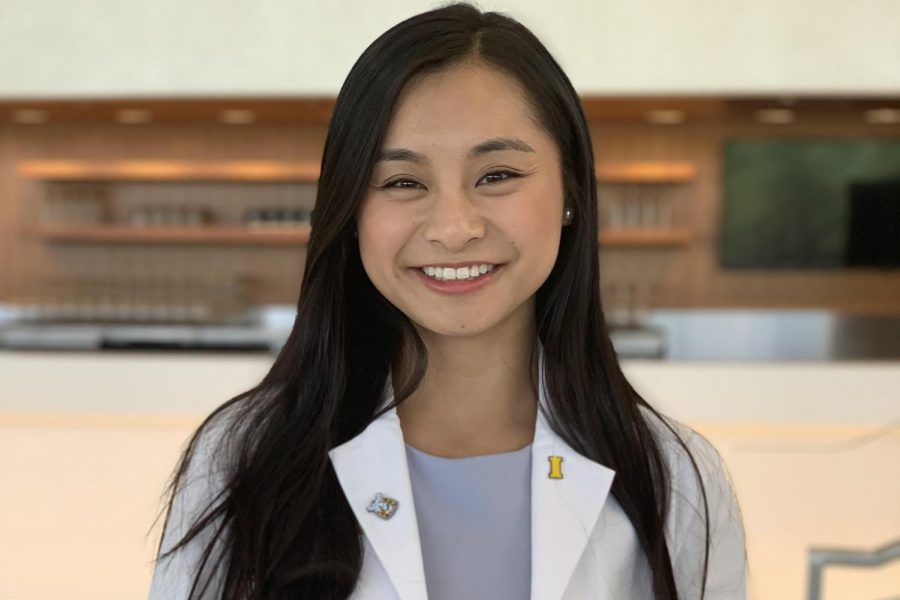Carver College of Medicine Hawkeyes provide services for health care workers
University of Iowa medical students are rallying behind professionals in the health-care field, providing services such as babysitting and running errands so medical providers can focus on their jobs during the pandemic.
March 29, 2020
Denise Martinez normally hands off her 16-month-old son to her parents when she needs childcare.
Because of the novel coronavirus, however, Martinez, the associate dean for Diversity, Equity, and Inclusion at the Carver College of Medicine and a family medicine clinical associate professor, has been triaging patients to get tested for COVID-19.
She moved out of her home and into an apartment with her younger sister to protect her older parents, which left her with a need for help taking care of her son.
A group of Hawkeye medical students, recognizing needs like hers, decided to form a group to help health-care workers like Martinez, who are under more pressure than ever as hospitals prepare for climbing numbers of novel coronavirus cases.
“Without that service, I couldn’t do some of the work that I absolutely have to do, so it’s really, really been a lifesaver,” said Martinez, who is planning on using the service for babysitting.
Related: UI health official says UIHC plans to ‘triple or quadruple’ in-house testing by next week
Carver Community Against COVID was created March 16, independent of the University of Iowa Carver College of Medicine, with a singular goal: to help doctors and other providers during the pandemic. The medical students are offering babysitting, meal prepping, pet sitting, and errand running — all completely voluntary and with no guaranteed compensation.
“The providers are on the front lines of preventing the virus from spreading,” said Katy Pham, a first-year medical student and the organizer of the initiative. “You can’t really forget that they are human too and have their own lives and families to take care of.”
The concept for the initiative was founded by Katherine Harris, associate director of the Internal Medicine Residency program and Salman Ansari, a chief resident in the Internal Medicine Department.
Before Gov. Kim Reynolds’ cancellation of local K-12 schools, Harris and Ansari discussed their concerns about working parents would find child care if schools were to close.
“A lot of our workforce is dependent on other people caring for our children while we’re working, and we knew this was a big stress to many physicians and faculty here in the hospital,” Harris said.
Initially, the team planned to reach out to colleagues to get the names of high school or college students who could participate before deciding to reach out to medical students who may have free time to help out if classes were canceled.
“We had the idea that perhaps instead of us taking the lead on it, maybe we could get in touch with the internal medicine interest group of students and see if the students can lead that initiative and it kind of took off from there,” Ansari said.
From there, an email was sent to the interest group March 14, when Pham decided to create and organize the initiative. Within two days, she had sent out Google forms to the medical-student community — one where students could sign up and state their ability and availability, and one for providers to list the services they might need.
At least 69 medical students have since agreed to help.
“I’m so proud of the students,” Martinez said. “And I know this is why they went into medicine. To figure out how to help people in ways that are really important.”
While the program currently just includes medical students, Pham said depending on the need, it may expand, but that would require additional rules and communication.
Pham thanked doctors for the hard work they are doing and continue to do on the front lines.
“I would just like them to know that the rest of the medical community has their back — including the medical students,” Pham said.



